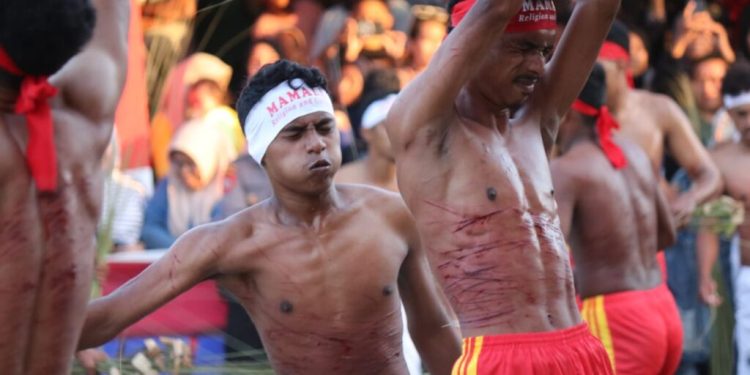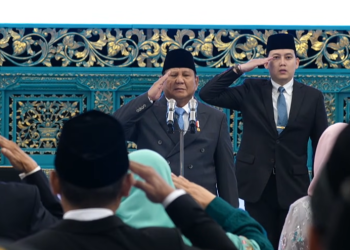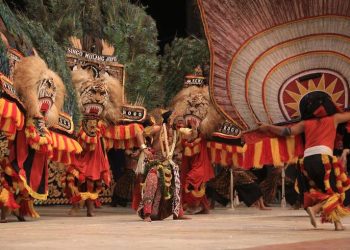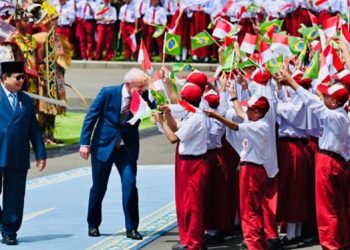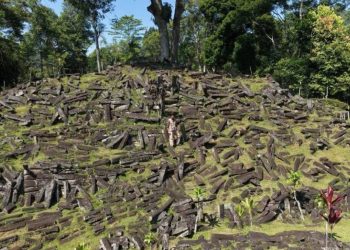Jakarta, Indonesia Sentinel — Indonesia is a country rich in ritual and traditions, including extreme cultural practices where participants willingly endure physical pain. One such ritual, known as Palasa or Baku Pukul Manyapu, involves participants whipping each other with sapu lidi (palm leaf stalks).
This annual ritual is performed by the youth of Negeri Morela in Leihitu District, Central Maluku Regency. The Sapu Lidi Whipping Ritual is held every year on the eighth day of Syawal, the seventh day after Eid al-Fitr.
Dating back to the 17th century, this ritual preserves cultural heritage and commemorates the sacrifices of Kapitan Telukabessy during the Kapahaha War against the Dutch East India Company (VOC).
Honoring Heroes with Bloodshed
According to Merdeka, the blood drawn during the ritual symbolizes respect for those who fought valiantly against colonial forces. Kapitan Telukabessy, a legendary leader, sacrificed his life to free his people from captivity. He was hanged for his resistance, and the ritual serves as a vivid reminder of the warriors’ blood spilled at Kapahaha Fortress in Morela.
Participants endure the pain of the whipping as a reflection of the heroes’ struggles. Taking turns, they strike each other repeatedly, often leaving their bodies bloodied. Despite the violence, the ritual embodies sacrifice, honor, and unity.
A Cultural Spectacle
The ritual, which lasts about 30 minutes, draws thousands of spectators each year, blending education and entertainment. It is part of a ceremonial celebration that includes historical storytelling and wisdom shared by local elders. Traditional performances such as the bambu gila (crazy bamboo dance), cakalele (war dance), and other Morela cultural dances enhance the event.
Read also : Crazy Bamboo: Traditional and Mystical Attractions of Maluku
The ritual begins with a torch-lighting ceremony dedicated to Kapitan Telukabessy, signaling the start of the whipping. Two teams, each consisting of 10 participants, face off in this symbolic battle. Their attire distinguishes them: black or white pants for one team and red pants for the other.
Pain, Sacrifice, and Healing
Participants use palm leaf stalks from the palm tree, over one meter in length, known for their flexibility and strength. The small, sharp stalks can easily cut the skin, drawing blood with every strike. As one participant raises their hands in submission, their partner strikes with full force, leaving visible marks of sacrifice.
The ritual is performed shirtless, with participants wearing red headbands called kain berang. Their stoic acceptance of the blows symbolizes the ultimate sacrifice made by Kapitan Telukabessy, who endured torture without resistance.
After the ritual, wounds are treated with natural remedies made from the sap of the jarak plant or mamala oil, known for their antibacterial properties. These treatments ensure quick healing without additional medical intervention.
A Legacy of Unity and Strength
Passed down through generations, the ritual has been preserved as a tribute to the bravery and resilience of Maluku’s ancestors. It instills the values of sacrifice and unity, crucial for maintaining communal bonds.
Despite the physical pain and bloodshed, participants hold no grudges or anger toward one another. Instead, they engage in the ritual with a sense of peace and comradery, reinforcing the spirit of solidarity and mutual respect.
Sapu Lidi Whipping Ritual not only honors the past but also strengthens the bonds among descendants of Kapitan Telukabessy and other warriors who fought in the Kapahaha War. It is a vivid reminder of their shared history and an enduring symbol of cultural pride.
(Raidi/Agung)


